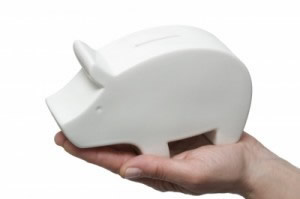How to Survive the Holidays without Wiping Out Your Savings Account
Published 11/19/10 (Modified 3/9/11)By MoneyBlueBook
This is a guest post from Jesse Mecham, founder of You Need a Budget
It's almost that time of year again. I'm not talking about gingerbread houses, cocoa, and caroling; I'm talking about shopping, impulse-buying, digging ourselves into more credit card debt, and raiding our savings accounts.
We undoubtedly lose a bit of sanity, self-control, or both when it comes to holiday spending. For most Americans, the nature of the season already implies we'll part with our money quicker than Santa can shoot up a chimney. The key, however, is not to spend it out of desperation, impulse shopping, or simply because you don't have a plan.
Plan spending ahead of time
Your biggest safe-guard against excess or unplanned holiday spending is (are you ready for this?) making a plan.
This means you actually create a budget...and stick to it. Decide how much you're willing to spend and then decide what you're going to buy from there. The more items you decide on ahead of time, the better. This saves you from making a decision in the heat of the moment, surrounded by all those shiny, new things, and potentially can keep you from overshooting your budget.
This will take some sleuthing on your part, but the research will pay off and keep money in your pocket. Once your list is made up and in your hand, it'll be so much easier to avoid those impulse buys.
Work to build up your
Read the full article » By Peter Andrew
By Peter Andrew